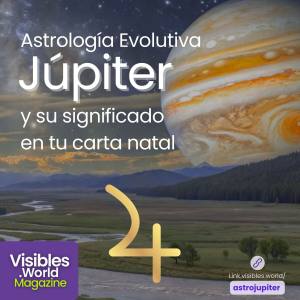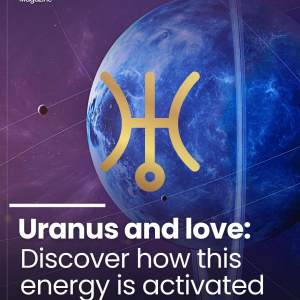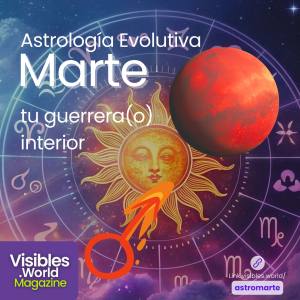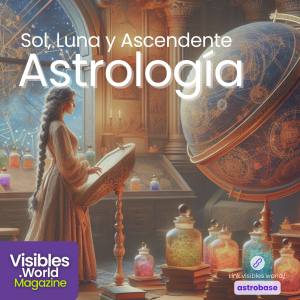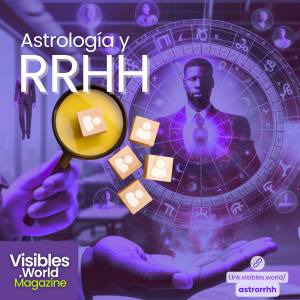Zodiac signs in different cultures: similarities and differences around the world
Astrology sometimes tends to be confused with the horoscopes that some people read in magazines; actually the horoscope is for many a diversion and at the same time a distortion of professional astrology, since, metaphorically speaking, the horoscope is similar to write with only 2 words the whole book Don Quixote Miguel de Cervantes, the horoscope is similar to write with only 2 words the whole book Don Quixote Miguel de Cervantes, so it is not so practical at the level of personal development, although it fulfills a clear objective to satisfy some curiosity of the readers and helps the marketing of the magazine where it is published; although, perhaps everything has its perfect beginning and knowing the horoscope is the starting point to begin an astrological path; astrology can become a powerful tool for human development that has been interpreted in different ways in different cultures and that is within a set of belief systems and paradigms for many centuries; even many religions, such as Christianity, are abcestrally based on astrology (an example can be that the emblematic character of Christianity is symbolized as the fish, representing the past era symbolized in the age of Pisces). Now, this is just one example as there are several models of ancient wisdom that occupy astrology, from the Eastern approach with the Chinese zodiac to the contemporary approach of modern astrology; each system has its own peculiarities and nuances that enrich our understanding of the zodiacal signs.
For example, while in the West the zodiac is considered to be divided into twelve signs corresponding to different periods of the year, and in modern evolutionary astrology, in the birth chart, they include the Ascendant, North Node, as well as the Moon, Pluto and Saturn as points of past attachments or potential evolutionary points to explore in the present; on the other hand, in Vedic astrology, they include the Ascendant, North Node, as well as the Moon, Pluto and Saturn as points of past attachments or potential evolutionary points to explore in the present. Vedic astrology (used in India) incorporates elements such as the zodiacal ascendant and the zodiacal decans, providing additional depth to the astrological analysis and in the Draconic Astrology Chart, it incorporates the North Node, (one of the purposes of the Spirit), as a central axis and locates it as the starting point of the person in the sign of Aries (first zodiacal sign culturally adapted in the West, and which comes from antiquity, older than the Sumerian, Babylonian and Hebrew culture).
The fascination with the zodiacal signs has transcended cultures and times, revealing common patterns that invite us to a deep reflection on our existence. For example, in Mayan astrology, signs are assigned based on the date of birth that are intimately related to nature and its life cycle. Each of these signs has specific characteristics similar to the western zodiac signs, although with a focus more connected to the elements and especially to the earth (the Mapuche culture, one of the native peoples in Chile, also proposes the structuring of the human cosmovision through the four basic elements). This connection with the natural environment is essential in many cultures, where the understanding of the zodiacal elements, such as fire and water, is integrated into daily life, influencing not only the personality but also daily practices. This demonstrates that astrology (professionally interpreted), acts as a mirror that reflects our deepest emotions and hidden longings as the potentials for fulfillment in this life that you have at hand, but may not yet have discovered.
As we explore these cultural similarities and differences, we find a common thread: the human desire to understand oneself and one's place in the universe. In a study conducted by Astrology.com, it was noted that nearly 65% of people consult their astrological chart not only out of curiosity, but as a guide for personal development. This data underscores how astrological traditions, regardless of their form or style, offer paths to self-knowledge.
Thus, by looking back at our different astrological traditions-from ancient wisdom to modern techniques-we can integrate this knowledge to enrich our lives. How about considering your birth chart as a personal map? It not only tells you your sun sign; it also reveals your planetary influences and how they may impact your career path. This holistic perspective can help you discover hidden talents and unexplored potentials.
"Astrology is the art of interpreting the stars; each sign reveals a story waiting to be told," writes someone anonymously who invites you to embark on this journey of self-discovery and collaborate with your own zodiacal myths to shape your unique destiny.
Imagine exploring how your sun sign influences not only your zodiac personality, but also your work relationships and career path. Each sign has specific characteristics: fire signs, such as Aries and Leo, are known for their vibrant energy and natural leadership; while water signs, such as Cancer and Scorpio, bring with them rich emotionality and sensitivity.
xYou may find that your birth chart not only reveals part of your personality, but also works as a mirror for your hidden emotions and talents. Evolutionary astrology thus stands as a map to self-understanding, revealing the vast horizon where our consciousness can shine with authenticity.
Universal Similarities in the Zodiac Signs
The universal similarities in the zodiac signs show us that, although cultures may differ in their interpretation and approach, there are underlying patterns that we all share. For example, the twelve signs of the Western zodiac and their characteristics have found parallels in other astrological traditions over time. Chinese astrology, for its part, introduces a twelve-year cycle, each associated with an animal that symbolizes certain qualities, such as the bravery of the Tiger or the wisdom of the Snake. This diversity highlights a truth: the search for self-knowledge is a human constant.
In one of our in-house astrology investigations, we have confirmed that a number of people from Western culture believe that their Sun sign influences their personality and in part their daily decisions. This view resonates with the evolutionary approach of modern astrology, where each sign acts as a mirror that reflects our inherent strengths and weaknesses.
Some clear examples include:
- Aries: known for their natural energy and leadership; these attributes also manifest in how Aries are perceived in work environments as bold entrepreneurs.
- Taurus: Their connection to stability and nature, organic and determination allows them to thrive in roles that require consistency and long-term actions.
- Cancer: This sign's emotional sensitivity translates into exceptional interpersonal skills, ideal for jobs focused on caring for others, soft skills for customer service.
It is said that the zodiac signs are like pieces of a cosmic puzzle omnipresent in the inherent of human beings in their micro and macro cosmos; and each brings its uniqueness to the larger canvas of being human.As we explore these universal similarities, we discover that something fascinating is not only how we identify with our sun sign, but how we can use this understanding to excel in our career paths. The combination of zodiacal characteristics along with our personalized birth chart can guide us toward more authentic and fulfilling paths.
Cultural Diversity in Zodiac Interpretation
Cultural diversity in zodiac interpretation is a fascinating topic that reveals how different peoples have sought to understand their place in the universe through the zodiac signs. Each culture has developed its own narratives and mythologies, giving each sign a unique nuance. For example, in Chinese astrology, twelve-year cycles are associated with animals such as the Dragon or the Rabbit, which symbolize specific qualities and are intertwined with the country's traditions and festivities. Unlike the Western approach, where constellations dominate the astrological landscape, Chinese astrology emphasizes the influence of the elements and their relationship to cyclical time. This contrast not only highlights the differences, but also the similarities in the human quest for self-knowledge.
In indigenous cultures of the Americas, such as the traditions of the native peoples in Chile, a deep connection between the cosmos and nature can be observed. Here, certain constellations are linked to ancestral stories that shape understanding about life and the environment. A Colla master used to say:
"The stars have been our guides since time immemorial; they teach us about our place on earth and our link to the divine.Similarly, when analyzing Indian Vedic astrology, we find that this practice not only considers the sun signs but also aspects such as the moon in the signs and the zodiacal ascendant. This multifaceted approach allows for a deeper understanding of the individual and his or her life purpose. By combining these various interpretations with traditional zodiacal characteristics-for example, how air signs like Gemini are often communicative and curious-we can offer a richer view of how these traits can influence our careers and relationships.
The wonder is that all of these systems seek the same thing: to help people shine authentically in their lives. As we navigate these varied astrological currents, we can integrate the best of each tradition to enrich our own astrological chart. So I invite you to explore not only your sun sign but other astrological aspects as well; you may find inspiration to approach your work challenges from a fresh perspective.
Modern applications of evolutionary astrology
Evolutionary astrology, in its most modern essence, acts as an illuminating beacon that guides people on their path to self-knowledge and personal growth. Nowadays, the applications of this discipline extend far beyond the mere prediction of the future; they have become fundamental tools for the development of skills and the improvement of emotional well-being, especially in work contexts. Let's take a look at some of these applications:
1. personal development: astrological chart reading allows people to understand their strengths and weaknesses. By knowing their zodiacal ascendant and the position of other planets in their natal chart, individuals can identify areas of growth and work on them consciously.
2. Career counseling: Career astrology has become a valuable resource for entrepreneurs and professionals seeking to align their careers with their true passions. For example, a session focused on a birth chart reading can reveal what types of activities are most fulfilling for you, helping you make informed decisions about career paths or job changes. If you are interested in exploring this approach, you can consult Career Astrology services.
3. Improving interpersonal relationships: By understanding one's own and others' zodiacal characteristics - such as how fire signs can be more impulsive while earth signs tend to be more practical - one can improve communication and collaboration at work. Zodiac compatibility can offer a new perspective on how we interact with colleagues and supervisors, thus fostering a more harmonious work environment.
4. Emotional self-care: The phases of the astrological cycle can serve as guides for personal self-care. For example, during certain planetary transits or new moons, it is a good time to reflect on personal projects or set new intentions. Staying aligned with these cycles can boost our creative energy and motivation.
"Astrology is not just about looking at the stars; it's about understanding how they influence our daily lives," notes Pablo Flores, renowned modern astrologer. This statement resonates deeply when we look at how each sign brings its own unique energy to the work environment.
So I encourage you to explore how these astrological tools can enrich your professional and personal life. Don't forget that each astrological experience has the potential to not only enlighten us, but also empower us to achieve our goals with authenticity.
Connecting Characteristics through Zodiacal Myths
Zodiacal myths are containers of emotional wisdom that connect us to our cultural and personal roots, giving us a space to explore the relationship between our identity and the cosmos. Through these narratives, each zodiac sign becomes a character who lives diverse human experiences, reflecting struggles, aspirations and triumphs. By understanding these narratives, we not only immerse ourselves in the psychology of the zodiac signs, but also in the very essence of our humanity.
For example, consider the myth of Scorpio, symbolized by the scorpion; this sign represents transformation and resilience. Its story tells us about being reborn and rediscovering oneself through pain. As the aphorism points out:
"Life is like a river: always flowing and transforming."This emotional journey resonates especially in work environments where overcoming obstacles is crucial to achieving success.
In addition, each sign is connected to zodiacal elements that can amplify your emotional energy. Fire signs, such as Aries and Leo, evoke passion and enthusiasm; while water signs, such as Cancer and Pisces, bring deep emotional sensitivity. This interplay between the myths and the elements not only defines our zodiacal personalities, but can also guide us in choosing careers that align with our innate energies.
Evolutionary astrology invites us to contemplate how these ancient narratives can be applied to our personal and professional development today. How does your own zodiacal myth resonate with you? What emotions does it stir as you reflect on your work experiences? By connecting with these archetypes, we can find new pathways to conscious and intentional growth.
What are Archetypes and how do they relate to the Arcana?
In exploring the zodiac signs around the world, it is important to note how each culture gives them unique meanings that reflect their beliefs and traditions. For example, in black African astrology, the zodiac is considered to be composed of elements of nature and ancestors, linking people to their cultural and spiritual roots. This perspective indicates that each sign not only defines personality traits, but also establishes a link with the natural environment and community. In this sense, planetary influences not only determine individual destiny, but also the social and familial role of each person.
Astrology sometimes tends to be confused with the horoscopes that some people read in magazines; actually the horoscope is for many a diversion and at the same time a distortion of professional astrology, since, metaphorically speaking, the horoscope is similar to write with only 2 words the whole book Don Quixote Miguel de Cervantes, the horoscope is similar to write with only 2 words the whole book Don Quixote Miguel de Cervantes, so it is not so practical at the level of personal development, although it fulfills a clear objective to satisfy some curiosity of the readers and helps the marketing of the magazine where it is published; although, perhaps everything has its perfect beginning and knowing the horoscope is the starting point to begin an astrological path; astrology can become a powerful tool for human development that has been interpreted in different ways in different cultures and that is within a set of belief systems and paradigms for many centuries; even many religions, such as Christianity, are abcestrally based on astrology (an example can be that the emblematic character of Christianity is symbolized as the fish, representing the past era symbolized in the age of Pisces). Now, this is just one example as there are several models of ancient wisdom that occupy astrology, from the Eastern approach with the Chinese zodiac to the contemporary approach of modern astrology; each system has its own peculiarities and nuances that enrich our understanding of the zodiacal signs.
For example, while in the West the zodiac is considered to be divided into twelve signs corresponding to different periods of the year, and in modern evolutionary astrology, in the birth chart, they include the Ascendant, North Node, as well as the Moon, Pluto and Saturn as points of past attachments or potential evolutionary points to explore in the present; on the other hand, in Vedic astrology, they include the Ascendant, North Node, as well as the Moon, Pluto and Saturn as points of past attachments or potential evolutionary points to explore in the present. Vedic astrology (used in India) incorporates elements such as the zodiacal ascendant and the zodiacal decans, providing additional depth to the astrological analysis and in the Draconic Astrology Chart, it incorporates the North Node, (one of the purposes of the Spirit), as a central axis and locates it as the starting point of the person in the sign of Aries (first zodiacal sign culturally adapted in the West, and which comes from antiquity, older than the Sumerian, Babylonian and Hebrew culture).
The fascination with the zodiacal signs has transcended cultures and times, revealing common patterns that invite us to a deep reflection on our existence. For example, in Mayan astrology, signs are assigned based on the date of birth that are intimately related to nature and its life cycle. Each of these signs has specific characteristics similar to the western zodiac signs, although with a focus more connected to the elements and especially to the earth (the Mapuche culture, one of the native peoples in Chile, also proposes the structuring of the human cosmovision through the four basic elements). This connection with the natural environment is essential in many cultures, where the understanding of the zodiacal elements, such as fire and water, is integrated into daily life, influencing not only the personality but also daily practices. This demonstrates that astrology (professionally interpreted), acts as a mirror that reflects our deepest emotions and hidden longings as the potentials for fulfillment in this life that you have at hand, but may not yet have discovered.
As we explore these cultural similarities and differences, we find a common thread: the human desire to understand oneself and one's place in the universe. In a study conducted by Astrology.com, it was noted that nearly 65% of people consult their astrological chart not only out of curiosity, but as a guide for personal development. This data underscores how astrological traditions, regardless of their form or style, offer paths to self-knowledge.
Thus, by looking back at our different astrological traditions-from ancient wisdom to modern techniques-we can integrate this knowledge to enrich our lives. How about considering your birth chart as a personal map? It not only tells you your sun sign; it also reveals your planetary influences and how they may impact your career path. This holistic perspective can help you discover hidden talents and unexplored potentials.
"Astrology is the art of interpreting the stars; each sign reveals a story waiting to be told," writes someone anonymously who invites you to embark on this journey of self-discovery and collaborate with your own zodiacal myths to shape your unique destiny.
Imagine exploring how your sun sign influences not only your zodiac personality, but also your work relationships and career path. Each sign has specific characteristics: fire signs, such as Aries and Leo, are known for their vibrant energy and natural leadership; while water signs, such as Cancer and Scorpio, bring with them rich emotionality and sensitivity.
xYou may find that your birth chart not only reveals part of your personality, but also works as a mirror for your hidden emotions and talents. Evolutionary astrology thus stands as a map to self-understanding, revealing the vast horizon where our consciousness can shine with authenticity.
Universal Similarities in the Zodiac Signs
The universal similarities in the zodiac signs show us that, although cultures may differ in their interpretation and approach, there are underlying patterns that we all share. For example, the twelve signs of the Western zodiac and their characteristics have found parallels in other astrological traditions over time. Chinese astrology, for its part, introduces a twelve-year cycle, each associated with an animal that symbolizes certain qualities, such as the bravery of the Tiger or the wisdom of the Snake. This diversity highlights a truth: the search for self-knowledge is a human constant.
In one of our in-house astrology investigations, we have confirmed that a number of people from Western culture believe that their Sun sign influences their personality and in part their daily decisions. This view resonates with the evolutionary approach of modern astrology, where each sign acts as a mirror that reflects our inherent strengths and weaknesses.
Some clear examples include:
- Aries: known for their natural energy and leadership; these attributes also manifest in how Aries are perceived in work environments as bold entrepreneurs.
- Taurus: Their connection to stability and nature, organic and determination allows them to thrive in roles that require consistency and long-term actions.
- Cancer: This sign's emotional sensitivity translates into exceptional interpersonal skills, ideal for jobs focused on caring for others, soft skills for customer service.
It is said that the zodiac signs are like pieces of a cosmic puzzle omnipresent in the inherent of human beings in their micro and macro cosmos; and each brings its uniqueness to the larger canvas of being human.As we explore these universal similarities, we discover that something fascinating is not only how we identify with our sun sign, but how we can use this understanding to excel in our career paths. The combination of zodiacal characteristics along with our personalized birth chart can guide us toward more authentic and fulfilling paths.
Cultural Diversity in Zodiac Interpretation
Cultural diversity in zodiac interpretation is a fascinating topic that reveals how different peoples have sought to understand their place in the universe through the zodiac signs. Each culture has developed its own narratives and mythologies, giving each sign a unique nuance. For example, in Chinese astrology, twelve-year cycles are associated with animals such as the Dragon or the Rabbit, which symbolize specific qualities and are intertwined with the country's traditions and festivities. Unlike the Western approach, where constellations dominate the astrological landscape, Chinese astrology emphasizes the influence of the elements and their relationship to cyclical time. This contrast not only highlights the differences, but also the similarities in the human quest for self-knowledge.
In indigenous cultures of the Americas, such as the traditions of the native peoples in Chile, a deep connection between the cosmos and nature can be observed. Here, certain constellations are linked to ancestral stories that shape understanding about life and the environment. A Colla master used to say:
"The stars have been our guides since time immemorial; they teach us about our place on earth and our link to the divine.Similarly, when analyzing Indian Vedic astrology, we find that this practice not only considers the sun signs but also aspects such as the moon in the signs and the zodiacal ascendant. This multifaceted approach allows for a deeper understanding of the individual and his or her life purpose. By combining these various interpretations with traditional zodiacal characteristics-for example, how air signs like Gemini are often communicative and curious-we can offer a richer view of how these traits can influence our careers and relationships.
The wonder is that all of these systems seek the same thing: to help people shine authentically in their lives. As we navigate these varied astrological currents, we can integrate the best of each tradition to enrich our own astrological chart. So I invite you to explore not only your sun sign but other astrological aspects as well; you may find inspiration to approach your work challenges from a fresh perspective.
Modern applications of evolutionary astrology
Evolutionary astrology, in its most modern essence, acts as an illuminating beacon that guides people on their path to self-knowledge and personal growth. Nowadays, the applications of this discipline extend far beyond the mere prediction of the future; they have become fundamental tools for the development of skills and the improvement of emotional well-being, especially in work contexts. Let's take a look at some of these applications:
1. personal development: astrological chart reading allows people to understand their strengths and weaknesses. By knowing their zodiacal ascendant and the position of other planets in their natal chart, individuals can identify areas of growth and work on them consciously.
2. Career counseling: Career astrology has become a valuable resource for entrepreneurs and professionals seeking to align their careers with their true passions. For example, a session focused on a birth chart reading can reveal what types of activities are most fulfilling for you, helping you make informed decisions about career paths or job changes. If you are interested in exploring this approach, you can consult Career Astrology services.
3. Improving interpersonal relationships: By understanding one's own and others' zodiacal characteristics - such as how fire signs can be more impulsive while earth signs tend to be more practical - one can improve communication and collaboration at work. Zodiac compatibility can offer a new perspective on how we interact with colleagues and supervisors, thus fostering a more harmonious work environment.
4. Emotional self-care: The phases of the astrological cycle can serve as guides for personal self-care. For example, during certain planetary transits or new moons, it is a good time to reflect on personal projects or set new intentions. Staying aligned with these cycles can boost our creative energy and motivation.
"Astrology is not just about looking at the stars; it's about understanding how they influence our daily lives," notes Pablo Flores, renowned modern astrologer. This statement resonates deeply when we look at how each sign brings its own unique energy to the work environment.
So I encourage you to explore how these astrological tools can enrich your professional and personal life. Don't forget that each astrological experience has the potential to not only enlighten us, but also empower us to achieve our goals with authenticity.
Connecting Characteristics through Zodiacal Myths
Zodiacal myths are containers of emotional wisdom that connect us to our cultural and personal roots, giving us a space to explore the relationship between our identity and the cosmos. Through these narratives, each zodiac sign becomes a character who lives diverse human experiences, reflecting struggles, aspirations and triumphs. By understanding these narratives, we not only immerse ourselves in the psychology of the zodiac signs, but also in the very essence of our humanity.
For example, consider the myth of Scorpio, symbolized by the scorpion; this sign represents transformation and resilience. Its story tells us about being reborn and rediscovering oneself through pain. As the aphorism points out:
"Life is like a river: always flowing and transforming."This emotional journey resonates especially in work environments where overcoming obstacles is crucial to achieving success.
In addition, each sign is connected to zodiacal elements that can amplify your emotional energy. Fire signs, such as Aries and Leo, evoke passion and enthusiasm; while water signs, such as Cancer and Pisces, bring deep emotional sensitivity. This interplay between the myths and the elements not only defines our zodiacal personalities, but can also guide us in choosing careers that align with our innate energies.
Evolutionary astrology invites us to contemplate how these ancient narratives can be applied to our personal and professional development today. How does your own zodiacal myth resonate with you? What emotions does it stir as you reflect on your work experiences? By connecting with these archetypes, we can find new pathways to conscious and intentional growth.
What are Archetypes and how do they relate to the Arcana?
In exploring the zodiac signs around the world, it is important to note how each culture gives them unique meanings that reflect their beliefs and traditions. For example, in black African astrology, the zodiac is considered to be composed of elements of nature and ancestors, linking people to their cultural and spiritual roots. This perspective indicates that each sign not only defines personality traits, but also establishes a link with the natural environment and community. In this sense, planetary influences not only determine individual destiny, but also the social and familial role of each person.

Realizado por: Gabriel Agustín Garay Opaso, CEO de Visibles World "Me formé en Astrología Laboral en la destacada escuela Astroterapéutica de Pablo Flores Laymuns, dónde la perspectiva central es lo emocional evolutivo; hice también cursos de Astrología Kabbalistica, talleres sobre las casas Astrológicas de Terra, cursos sobre el Nodo Norte del propósito de alma, y de Saturno, Manifiesta tu realidad" Te puedo ayudar también interpretando tu Carta Astral enfocado en tu Desarrollo Laboral y también en proyectos propios ó empresas que tengas a cargo, ayudando a através de mi Agencia Creativa de Comunicaciones ó desde la Astrología enfocada en las RRHH con mis consultorías. Escríbeme
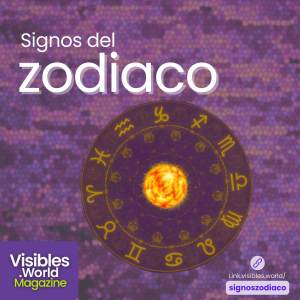

 ES
ES  EN
EN ![<a href="index.php?option=com_tags&view=tag&id[0]=61:cultura">cultura</a>, <a href="index.php?option=com_tags&view=tag&id[0]=99:astrology">Astrology</a>, <a href="index.php?option=com_tags&view=tag&id[0]=101:signos-del-zodiaco">signos del zodiaco</a>, <a href="index.php?option=com_tags&view=tag&id[0]=102:astrology-chile">astrology chile</a>](/templates/yootheme/cache/e1/articulo-signos-zodiaco-portada_v2-e1234d93.jpeg)

